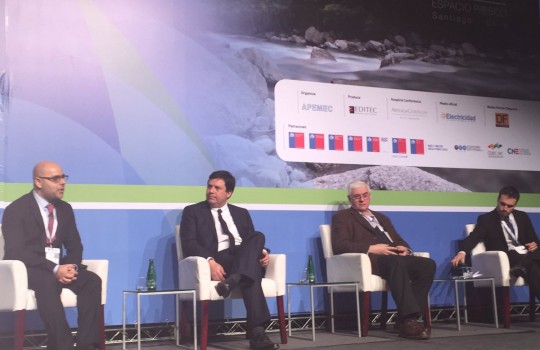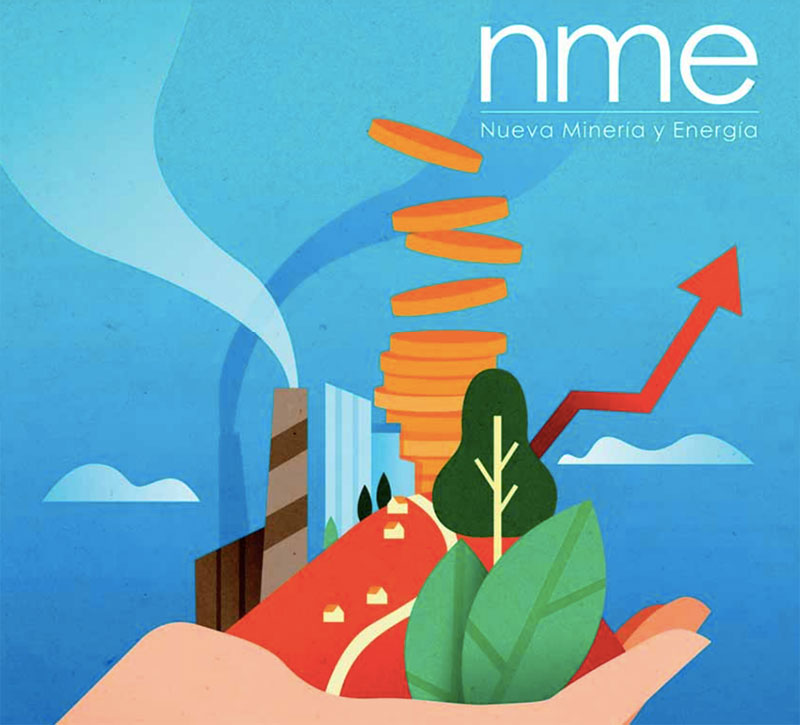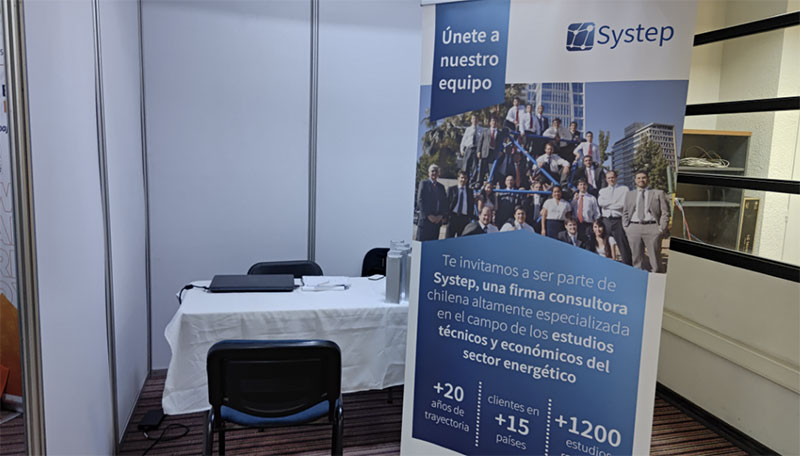
Pedro Miquel, a consultant at Systep, agreed with the authority’s analysis, pointing out that establishing this type of quotas will cause disincentives to the sector, which is also shared by Apemec.
CNE: mandatory percentage of NCRE in development poles will affect mini hydro
The executive secretary of the National Energy Commission (CNE), Andrés Romero, assured that the idea of establishing a mandatory percentage for the participation of Non-Conventional Renewable Energy (NCRE) in the future development poles contemplated in the transmission law will affect the potential of the basins for the development of hydroelectricity, especially mini hydro.
The authority made these comments during the panel on the impact of the new transmission law on the mini hydro sector, held on the second and last day of the VII version of the international fair Expo Apemec 2016, which took place in Espacio Riesco.
Currently, the bill that modifies the country’s electricity transmission system is in a mixed commission in Congress, where some points must be settled before it is enacted into law, among which is the creation of development poles, specifically regarding the percentage of participation of non-conventional renewable energy sources that they must have.
According to Romero, “the analysis we made at the Ministry of Energy and the CNE is that introducing a mandatory percentage, which a non-conventional renewable energy development pole must have, goes against the development of non-conventional renewable energy itself because it inhibits the development of some basins of mini-hydro projects that could be very profitable for the country”.
Apemec Support
Romero’s analysis was shared by other speakers on the panel, such as Pedro Miquel, a consultant at Systep, who stated that an eventual mandatory percentage would generate distortions and barriers, which “could lead to the collapse of some development poles simply because of an arbitrary decision to place a quota there”.
“In my opinion, the quotas (of NCRE in the development poles) play badly because they begin to generate distortions that, at the end of the day, will increase the amount of dollars per MWh that will fall to the generation projects themselves and, far from becoming an incentive, they will become a barrier,” the specialist said.
This view is also shared by the Association of Small and Medium Hydroelectric Power Plants (Apemec), as it could affect the development of mini-hydro projects.
Regional development
The first module of the second day addressed the regional vision of mini-hydro development in La Araucanía and Los Ríos, where the intendant of the first region, Andrés Jouanett, said that in the area there are guarantees to invest in projects, so he called not to pay attention to the “myths” that arise around the region.
Egón Montecinos, the mayor of Los Ríos, said that a strategic territorial development plan will soon be launched, pointing out that energy projects in the area must comply with environmental regulations.
Both mayors stated that it is necessary for project developers to incorporate the concept of shared value in the places where they are installed, also thinking about the contribution to local development, which is valued by the communities.



